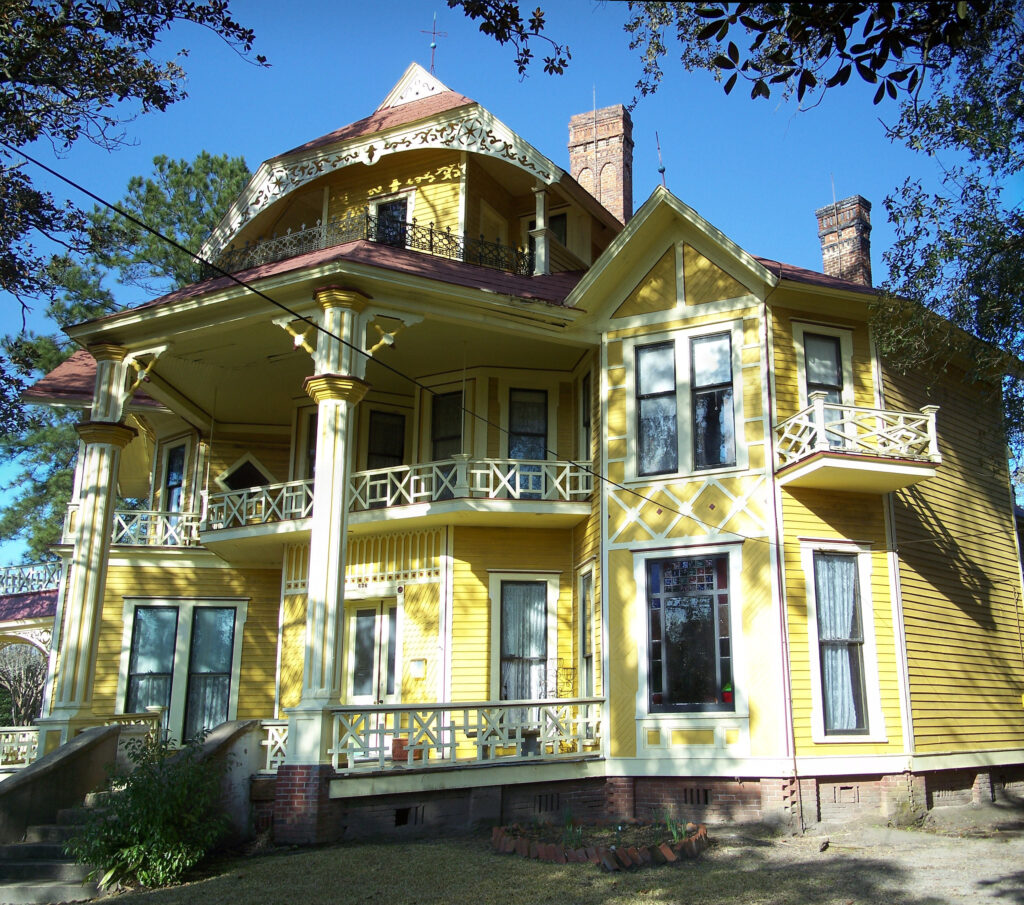
ATLANTA – Legislation supporters say would attract private dollars to historic preservation projects across Georgia is raising fears it could threaten 120 state parks, wildlife management areas and historic sites designated as heritage preserves.
A bill the Georgia House of Representatives passed with little fanfare on a busy Crossover Day in March would let the state sell parcels of up to 15 acres at sites listed as heritage preserves to private entities or nonprofits. Under current law, the state can sell heritage properties only to local governments.
Putting such publicly owned lands in private hands could pave the way for development projects that would go against the intent of the 1975 state law establishing the preserves, the co-directors of a University of Georgia historic and cultural preservation warned in an open letter.
“Limiting public access and permitting development is the opposite intent of the Heritage Act’s purpose to make the state’s unique natural, historical and recreational places ‘available to all Georgians, now and in the future,’ ” wrote Maurice Bailey and Nik Heynen, co-directors of the Cornelia Walker Bailey Program on Land and Agriculture, named to honor a member of Sapelo Island’s Hog Hammock who fought for the survival of the Gullah-Geechee community there.
Historic preservation advocates in coastal Georgia have been particularly active in bringing public awareness to House Bill 906.
They have raised concerns about a distillery proposed for Butler Island in McIntosh County, part of the Altamaha Wildlife Management Area. A rice plantation there that once housed more than 900 slaves was the site of the largest slave auction in U.S. history in 1859.
But the bill would affect other parts of Georgia where preservationists are eyeing projects that could benefit from an injection of private or nonprofit funding.
The historic state-owned Lapham-Patterson House in Thomasville, built in the Victorian style during the 1880s, is among the state’s heritage preserve sites. But it’s deteriorating with age and needs extensive repairs the cash-strapped state can’t afford, said Georgia Rep. Darlene Taylor, R-Thomasville.
“It takes a lot of money to maintain it,” said Taylor, chief sponsor of House Bill 906. “[But] in today’s budget world, how can we find the money? We still have to fund maternal mortality [prevention], teachers, Medicaid. There’s only so much money.”
Josh Hildebrandt, director of governmental affairs for the Georgia Department of Natural Resources, said historic buildings like the Lapham-Patterson House are prime candidates to benefit from the proposed legislation, rather than the state parks or wildlife management areas on the list of heritage preserve sites.
“It’s different with a structure,” he said. “Anybody from a homeowner to a historic preservation organization knows what houses and other structures go through from nature and the weather, as opposed to a piece of land that’s used as a deer habitat.”
Taylor said the bill includes safeguards aimed at protecting the historical integrity of heritage properties the state decides to privatize. Proposed sales would be subject to a public hearing and would have to be approved by the Georgia Board of Natural Resources, she said.
“If something is a bad project, it will be killed,” she said.
But the bill’s critics point to uncertainties in its wording, including whether the 15-acre tracts the measure envisions could be subdivided into smaller lots and sold to several private entities, or whether a single private entity could buy up enough contiguous 15-acre parcels to take over an entire heritage preserve site.
“House Bill 906 opens a door for Ossabaw [Island] and other heritage preserves to be removed piecemeal from use by generations of Georgians, subdivided and conveyed to out of state ownership … for just about any use,” Elizabeth DuBose, executive director of the Ossabaw Foundation, warned in a letter.
But Hildebrant said the bill includes provisions to prevent the negative consequences of a sale DuBose fears.
“It is critically important to realize that any property that might be conveyed is required to have a perpetual conservation easement placed on it,” he said. “[That] would limit the type of activities and changes that could be done on the property … protecting its historic nature and integrity.”
The state Senate is expected to take up the bill when the General Assembly resumes the suspended 2020 legislative session on Monday.